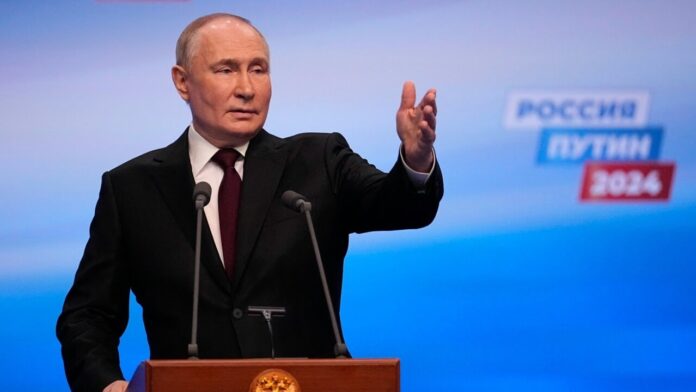Amid ongoing conflicts and internal disputes, Russian President Vladimir Putin appoints economist Andrey Belousov as the new defence minister, signalling a strategic shift
In a significant reshuffling of Russia’s military leadership, President Vladimir Putin has announced the replacement of Defence Minister Sergei Shoigu with Andrey Belousov, an economist with no military background. This move comes more than two years into Russia’s military engagement in Ukraine and follows a series of setbacks and internal discord within the Russian military ranks. The appointment of Belousov, previously one of Putin’s top economic advisers, marks a strategic pivot towards integrating economic strategies with military operations, as Russia faces ongoing economic sanctions and the need for innovation in its military approach.
RTE Coverage
Vladimir Putin’s decision to replace Sergei Shoigu with Andrey Belousov reflects a strategic shift in the Kremlin’s approach to military leadership. RTE reports that this change occurs at a critical juncture in the Ukraine conflict, with Russian troops launching new operations in the northeastern Kharkiv region. The article emphasizes the Kremlin’s need for innovation in the Defence Ministry, quoting Kremlin spokesman Dmitry Peskov, who highlighted the necessity for “advanced ideas” and economic competitiveness in military operations. RTE portrays Belousov’s appointment as a move to revitalize Russia’s military strategy amid ongoing challenges on the battlefield and in the geopolitical arena.
BBC Coverage
The BBC focuses on the implications of Shoigu’s replacement by highlighting his longstanding relationship with Putin and their past joint appearances in public and private settings. It notes Shoigu’s lack of military background and the criticism he faced over his handling of the Ukraine war, particularly from figures like Yevgeny Prigozhin, a mercenary leader who openly challenged Shoigu’s competence before his death in a plane crash. The BBC discusses Belousov’s economic expertise as a factor in his appointment, suggesting that Putin aims to more closely align Russia’s economic resources with its military expenditures to bolster the war effort.
Reuters Coverage
Reuters provides a detailed analysis of the reshuffling, noting that Belousov’s appointment is part of a broader strategy to enhance Russia’s military-industrial complex’s efficiency amid the war. The coverage explores the background of Belousov’s career, emphasizing his economic expertise and close ties to Putin. Reuters also mentions the ongoing parliamentary process required to formalize these appointments and hints at potential future shifts in Russian leadership dynamics, especially concerning other high-profile figures like Nikolai Patrushev.
The Guardian Coverage
The Guardian delves into the personal and professional ramifications of Shoigu’s replacement, emphasizing his role in the annexation of Crimea and his popularity within Russia. The article highlights the internal criticisms Shoigu faced, particularly related to military setbacks in Ukraine and issues of corruption within the army. It also reflects on the broader context of Belousov’s appointment, suggesting that this shift is aimed at enhancing the strategic integration of Russia’s economic capabilities with its military needs, which could redefine Russia’s approach to its ongoing military engagements.
The replacement of Sergei Shoigu with Andrey Belousov is a pivotal moment in Russian politics, reflecting a strategic recalibration of military and economic priorities. As Russia faces continued challenges both on the battlefield and in international relations, this leadership change is indicative of Putin’s approach to consolidating power and aligning the country’s military strategies with its economic imperatives. The global community and political analysts will closely watch the impact of this leadership transition on the conflict in Ukraine and Russia’s broader military policies.
